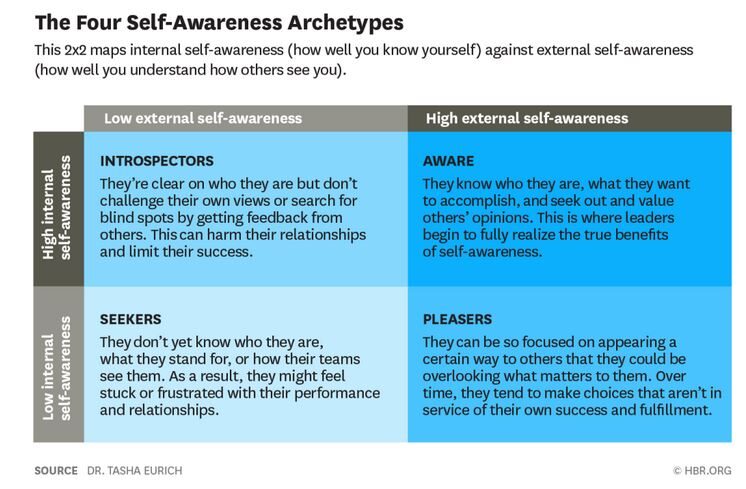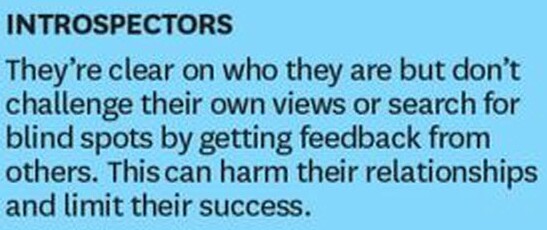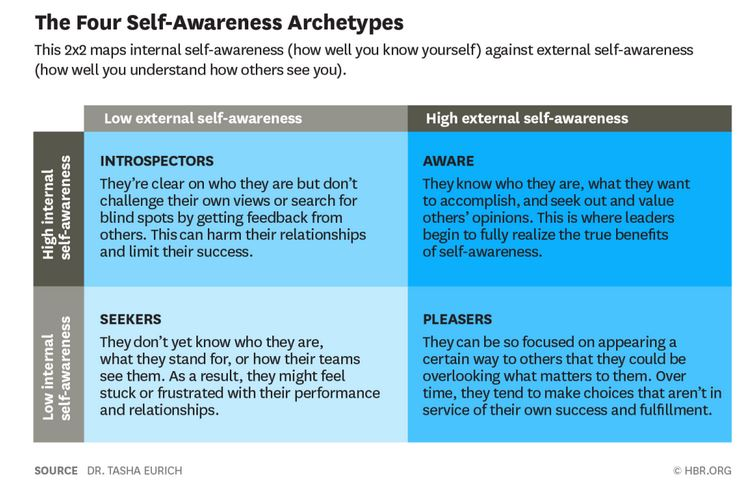 “A man wrapped up in himself makes a very small parcel.”
“A man wrapped up in himself makes a very small parcel.”
~John Ruskin
When you have a narrow cone of vision, or watch something to close to it… so close that you identify with it, what you see is largely useless.
Try this: try to see your palm clearly while your eyes are only a centimeter from your skin. You can’t. And everything there will fill you will dread… without a larger context nothing makes sense, and everything feels threatening.
When you look at your feelings, your thoughts like you just looked at your palm, we call that introspection.
Some of my students go there, from time to time, instead of keeping distance between the observed and the observer, distance physically, emotionally, intellectually, and spiritually.
The Amish Horse Training Method, the Playground method (the meaning), the Memes (Tree of Knowledge), the Attitudes (Approaches), and, of course the whole science of being able to tell a feeling from an emotion… aka the Marker Feelings… They all need you to keep a healthy distance and a neutral attitude… i.e. observe them from the “Observer or Witness” position. From Outside of yourself. 1
My webinars, my workshops, train you to distinguish for yourself what it feels like to create a distance, what it sounds like, what it looks like… to you.
What it feels like to be in Plato’s Cave… and what it feels like to be outside.
Life, thoughts, emotions, relationships, life’s purpose, liking… all look different in the “light of day”… i.e. outside of Plato’s Cave.
I am still learning to teach creating distance… teaching it with simple words…
It is, in my experience, the hardest thing to teach. You cannot connect to Source unless you can create that distance. You cannot muscletest accurately, unless you can create that distance. You can’t have a life that works, unless you can create that distance.
And I can’t explain to you how to do it… I even had a whole course once on just that… It was called “Detached” and it taught the participants, unsuccessfully, to step back.
So this is a work in progress… to teach it with words.
Participants who took my Playground, the Amish Horse Training, and the Money Attitudes workshops learned it through osmosis…
But how do you translate it to words… Sigh…
One of my students implemented a new practice: becoming an idea machine. He has committed to write 10 new ideas a day. I have tried: wicked hard… but gets you out of the cave. Why? Maybe because reality is a lot bigger than your cave? lol.
I hear the odd teacher or writer mentioning this issue… but they, so far, haven’t written anything that would help me help you.
OK… let’s see what are your options:
If you look at the illustration on the top of this page, you see four quadrants. The “archetypes” are 10% accurate… the truth value is what phd’s can create… low, but maybe we can use it for discussion.
The first category or archetype it talks about is the  They spend their entire self-obsessed time in their mind. They want to get better, they are obsessed with self-improvement. This, counter-intuitively, has a positively negative effect on their “self-improvement”.
They spend their entire self-obsessed time in their mind. They want to get better, they are obsessed with self-improvement. This, counter-intuitively, has a positively negative effect on their “self-improvement”.
One interpretation of self-improvement is called the introspection mode—where you continually examine your thoughts and feelings—and it can get you stuck… inside Plato’s Cave, where you wanted to get out of… to begin with. Rather than becoming more self-aware, you lose touch with reality, the reality of yourself (and others).
You might be thinking that introspection is the same as self-awareness… but it isn’t. In introspection you honor all the thoughts and all the feelings as real… and then you think about it. Introspection is rehashing thoughts, and it doesn’t generate insights. For insight you need to see something from a distance… or you won’t see it.
90% of the visitors of this site start out as Introspectors. Their “thinking about themselves” score is sky high (above 90%), their delusion/inauthenticity score: ditto.
There is nothing wrong with them: they are looking at things inside Plato’s Cave, and even there they are looking from too close.
Too Much Introspection Can Kill You
Thinking doesn’t lead to knowledge.
Contrary to what you would expect, people who score high on self-reflection are more stressed, anxious, and less satisfied with their work and personal relationships. They are self-absorbed and feel less in control of their lives. No wonder: life is happening outside of Plato’s Cave… and that is not where they are.
Thinking about yourself is not correlated with knowing yourself.
Self-reflection and insights are an inverse phenomenon… they are inversely correlated. The more time you spend doing introspection the less insight you are able to gain.
Constantly inspecting your thoughts, feelings, and behaviors doesn’t mean you see the inner dynamic, the causation, the correlation. You are too close to it to see it.
You can gain insight from comparing introspection, where you are busy with your thoughts and feelings and meditation where your job is to simply allow your Witness to see the thoughts and feelings, from a neutral, sober eye perspective. In introspection you are “in it”… In meditation you are outside of it… or at the minimum, you have a distance between the observer and the observed.
Introspection involves thinking, categorizing, labeling, analyzing—you are evaluating your thoughts and emotions. Mostly from the systemic value point of view. Meditation is about being aware of what you are doing and just observe—you witness thoughts, feelings, reactions without judging them.
The Introspection Trap
You may approach self-improvement with a rigid mindset: that there is something wrong with you that needs to be fixed. You expect to find an answer that will fix what is wrong with you.
This does not work, because there is nothing wrong with you. You cannot fix what is not wrong.
It works to trust consciousness and appreciate the journey from where you are, what you can see now, and what is possible to see during the journey. When you allow consciousness to view what there is to view, reality, your behavior will change, inside and outside.
Consciousness, witness, observer are words I use interchangeably to address that impartial part of “All-of-it” that isn’t concerned with right and wrong, good and bad, living or dying… That part of you is able to see where you deviate from the strait and narrow… and once you saw it, with Consciousness, you cannot unsee it.
Jon Kabat-Zinn said: “Mindfulness means paying attention in a particular way; on purpose, in the present moment, and non-judgmentally.” When Jon Kabat-Zinn says “in the present moment” he should say: not jumping into “ever/never” conclusions… right/wrong conclusions… that kind of conclusion comes from the mind… not consciousness.
Mindfulness is the practice of noticing the degree in which we are identified with our thoughts and beliefs. It’s creating space for:
Awareness, not thinking
An attitude of openness and curiosity, not judging
Flexibility of attention, not resisting
I don’t think mindfulness is a good word… but maybe you’ll connect to it… albeit I have never met a man or a woman who practiced mindfulness and WAS “mindful”… meaning: not thinking, not reactive, not resisting.
When you fall into the introspection trap, you spend all your time in Plato’s Cave. 2
“Self is a sea boundless and measureless.”
~Kahlil Gibran
Self Reflection is judgmental…
To know yourself is to accept yourself. I call that Unconditional Love… where the two selves you have form a relationship of love and acceptance, regardless of what one would expect, mistakes, faults, weaknesses. Like an ideal mother would accept an imperfect child. An impossible ideal… But you can get closer and closer to it.
My two selves, just measured, are 8% from each other, or that Unconditional Love. This is why I can take the abuse of that Psychic witch who has been tormenting me. This is why I can be OK not knowing stuff that I SHOULD know… except you know what you know, and can work on finding answers to what you don’t know… I am OK with that.
The further your two selves are, the less tolerance, the less patience, the less elbow room you have for yourself to be.
When I ask people what they want most, they want to be free to be themselves.
But the jail-keeper, the task master, the slave driver is themselves…
Self-awareness is achieved through observing and accepting who you are, how you are, warts and all—not who you should or shouldn’t be. Acceptance is embracing every part of your self, not just the nice ones.
Thinking about yourself isn’t correlated with knowing yourself. It can sometimes create the opposite effect: the more time you spend in introspective mode, the less self-aware you become.
You can spend a whole weekend doing introspection and, come Monday, you won’t have improved your self-knowledge.
People with higher self-awareness are more confident, more creative, communicate more effectively and build stronger relationships.
I have been reading the books of a guy, I call The Dude. I can track how his self-awareness grows… how he got out of introspection/unconsciousness mode… and what he did to achieve that. I am going to schedule a webinar to teach it… watch out for my emails…
To increase your self-awareness you need to look outside, not just inside.
Focusing too much on yourself is a trap. You put yourself in the center of the Universe… and expect others to see you as you see yourself. They won’t… they will see you the way they see you. 3
The Path of The Self Aware Person
“Knowing yourself is the beginning of all wisdom.”
~Aristotle
Developing self-awareness is not a goal, like an Olympic gold medal… it is nothing until you get it. It is on a scale between 1-100… My self-awareness is 70%. Whatever is lacking in my life is a consequence of not having a full self-awareness, yet I am reasonably happy, reasonably healthy, reasonable able to live comfortably, and am fulfilled.
The four aspects of the self, physical, emotional, intellectual, and spiritual need to be observed in tandem and grown in tandem
Being obsessed with understanding your inner-self can get you stuck. You probably call your inner self how you feel… while the rest of you is left in the dark.
Self-awareness, the non-judging, not-too close awareness of your different aspects, your behavior, your place in the world, how you affect other people, makes you more confident. Because you can see.
And anything you can see, you can adjust.
- 1. Tracking the voices and being able to tell them from yourself… The technology taught in the Amish Horse Training
2. Tracking the memes and again… telling them from your own views… your own Tree of Life truth. Memes could be said to the The Tree of Knowledge the Old Testament talks about. The Tree of labeling…
3. Telling apart what happened and the meanings, interpretations, you added or accepted, etc. This technology is taught in the Playground.
4. Recognizing the unproductive attitudes, stuck attitudes, that won’t allow you to have what you want, and create new ones and make them real in your life. I teach this, or at least wake you up to them in the Money Attitudes workshop. I plan to create a course, like a did for the Playground, many weekends long
- I am quoting from an article… original here. Obviously, if you know what I teach, what is written in this article is imprecise and ineffective. No distinction, no definition here… But you may be able to enjoy it, so read it
The Introspection Mode Trap
1. You let self-doubt take over
Your mind is fragile. Too much thinking invites self-doubt to take over. When you lose touch with yourself, you stop appreciating what you are worth. What is essential is invisible to reason.
Self-doubt erodes confidence. And you start feeling sorry for yourself. Self-pity is an exaggerated sense of sorrow when you become a victim of your inner-critic. The quest for finding who you are can turn you upside down.
2. You rehash memories over and over
Rumination is an ineffective coping behavior. When we cannot accept reality, we repeatedly chewing sad experiences or conversations, is like getting stuck in the sand.
Rehashing memories is like watching the same movie over and over. You know the storyline by heart, pretending a different ending is useless. Spinning a story will get you stuck without providing any insights.
3. You are obsessed with finding ‘the’ truth
Most people do soul searching to find the perfect answer. However, there’s no absolute truth. We all have different challenges—there’s no such a thing as a perfect solution that addresses everyone’s questions.
Trying to find ‘the’ truth can blind us. You stop observing; no answer will ever be good enough. It’s better to be kind to yourself than to be right. Be compassionate with yourself. What seems right today might not work for you tomorrow.
Your questions will change, so will your answers.
4. Your thoughts can eat you alive
Having thoughts is normal. But when you fall into the introspection mode trap, you let your thoughts take over. Too much thinking can get you distracted. Or, even worse, they can cloud your mind.
Your thoughts are like wolves that live inside of you, as I wrote here. If you don’t tame them, they can eat you alive. You need to neutralize your thoughts to avoid turning introspection turn into a suffering game.
5. You have a perfectionist mindset
Perfectionism is the enemy of change. When your standard is too high, nothing you think or do will be enough. Instead of helping you uncover insights, introspection feeds your judgmental mind.
Self-reflection without compassion is torture—it’s your judgmental self on steroids. Constantly trying to over-perform triggers the fear of making mistakes and underperform. Reflect to improve, not to become perfect.
Self-Awareness Is Not Just about You People who score high in self-awareness (“Aware) know themselves well and also care to understand how others see them.

Source: Harvard Business Review“Introspectors” lack external self-awareness. They are unaware of their blindspots—they don’t know what they don’t know. Looking for external feedback is critical to developing external self-awareness. The five questions exercise is a good tool for this… if you do it in a way where people are willing and able to tell you the truth without you getting upset…
“Pleasers” are focused on external perception. They care so much about what others think of them that they are not authentic. They lost touch with themselves and don’t do much about it. Instead of seeking fulfillment, they wear the masks others expect from them. Smart, confident, kind, funny… all fake, all invented, all make you miserable.
“Seekers” are lost souls. They lack clarity on who they are or what they stand for. They are also clueless about how others perceive them. Being a “seeker” can be a temporary or permanent stage. We all lose clarity of who we are from time to time. Some people simply decide not to do anything about it.
This matrix is helpful to assess of where you are and what you need to work on.
